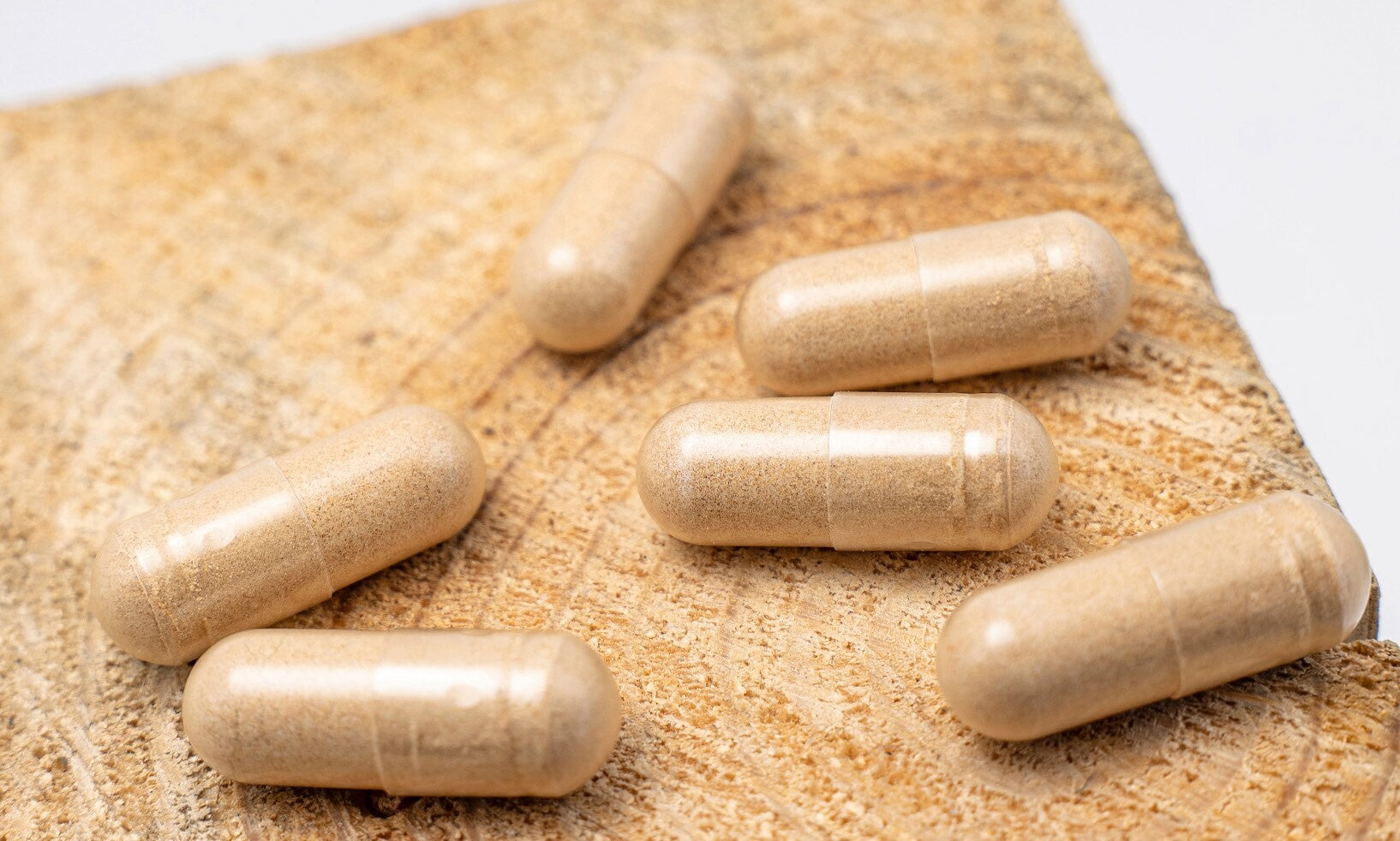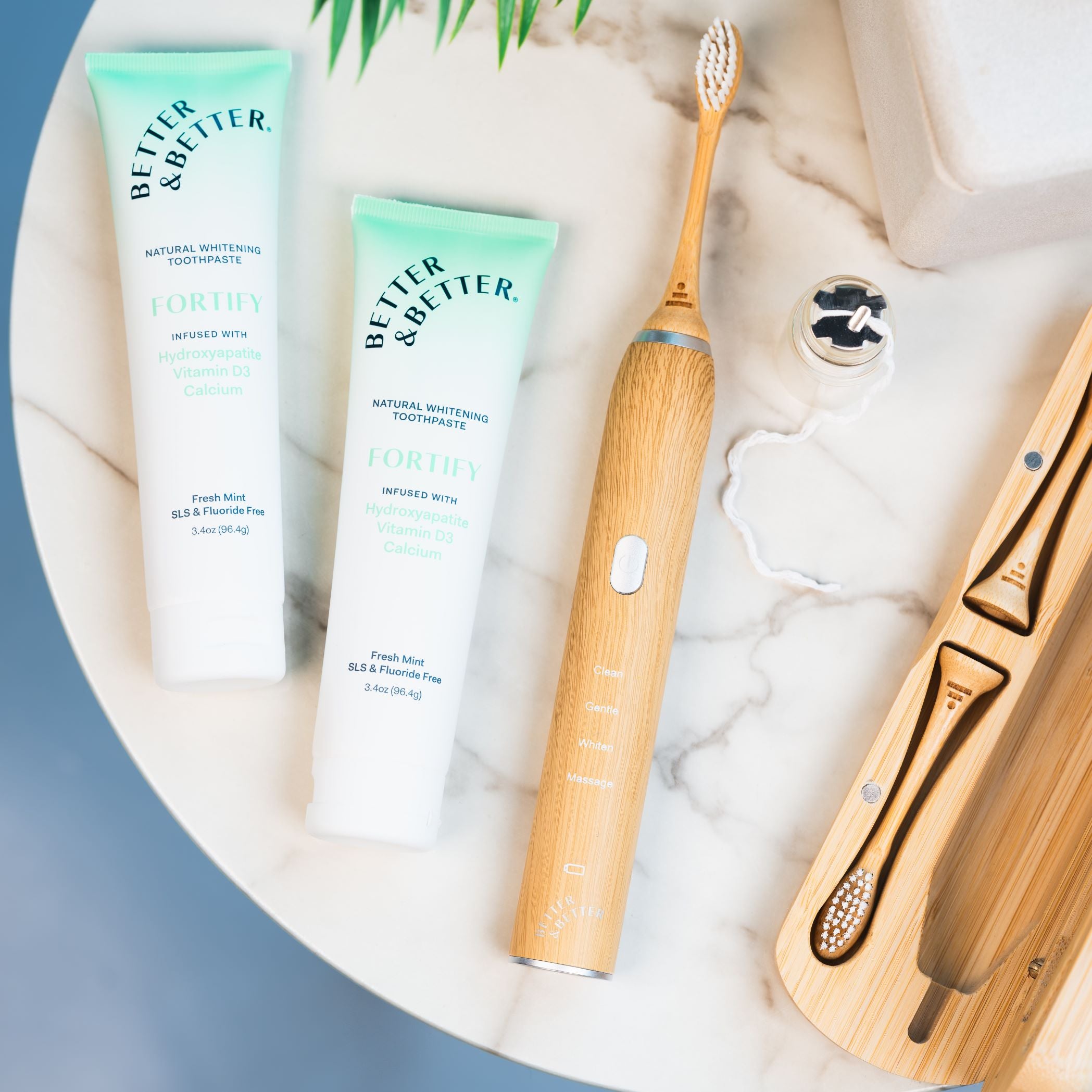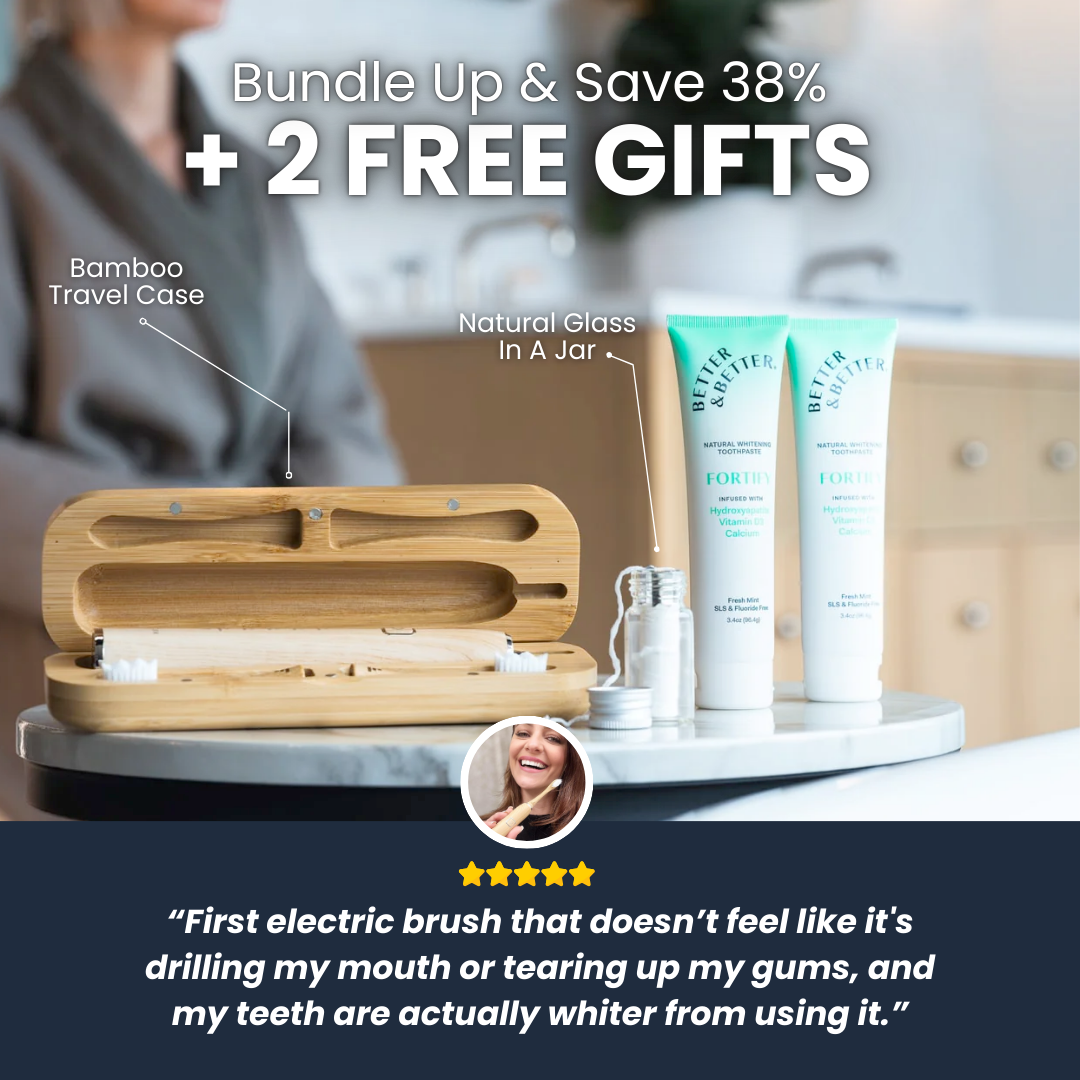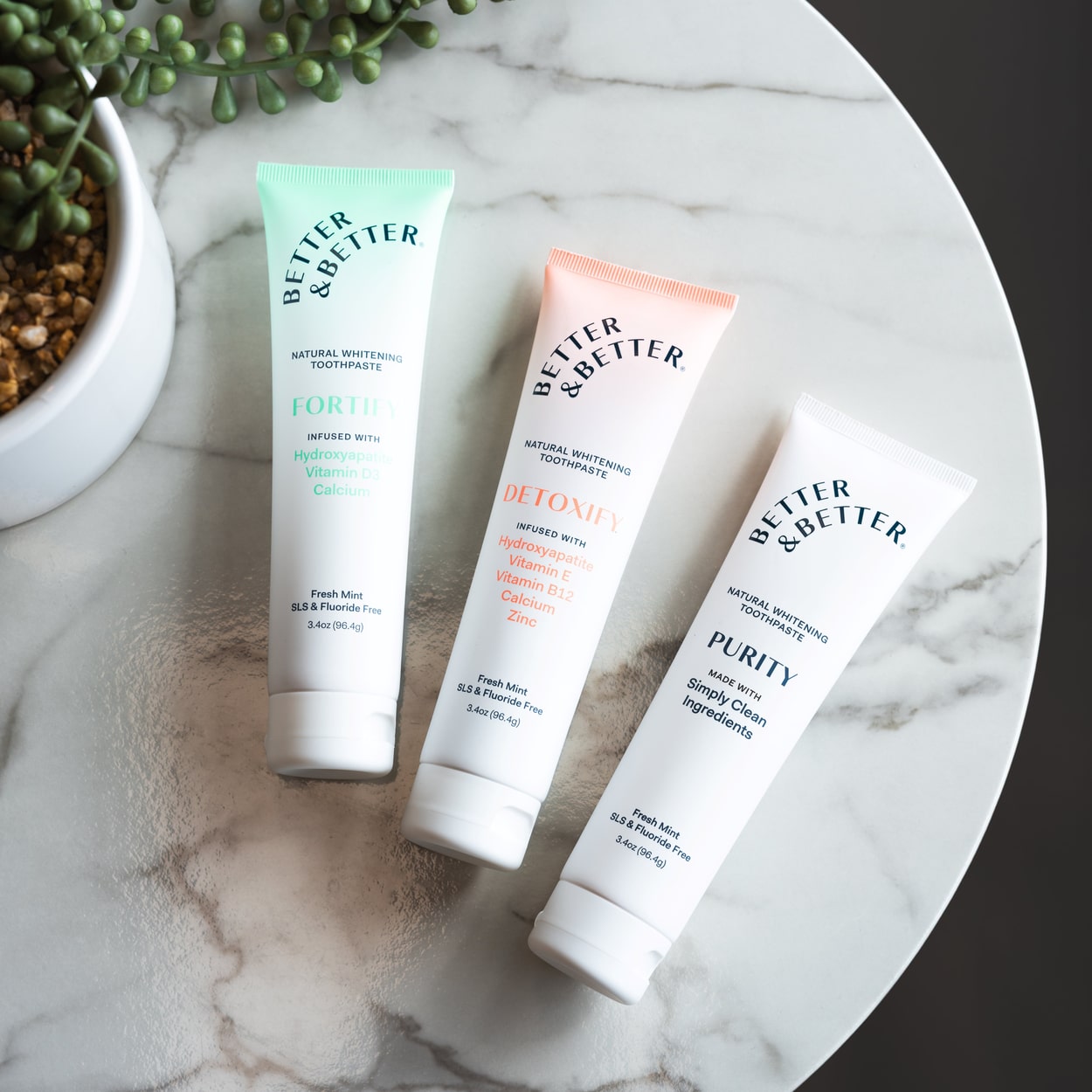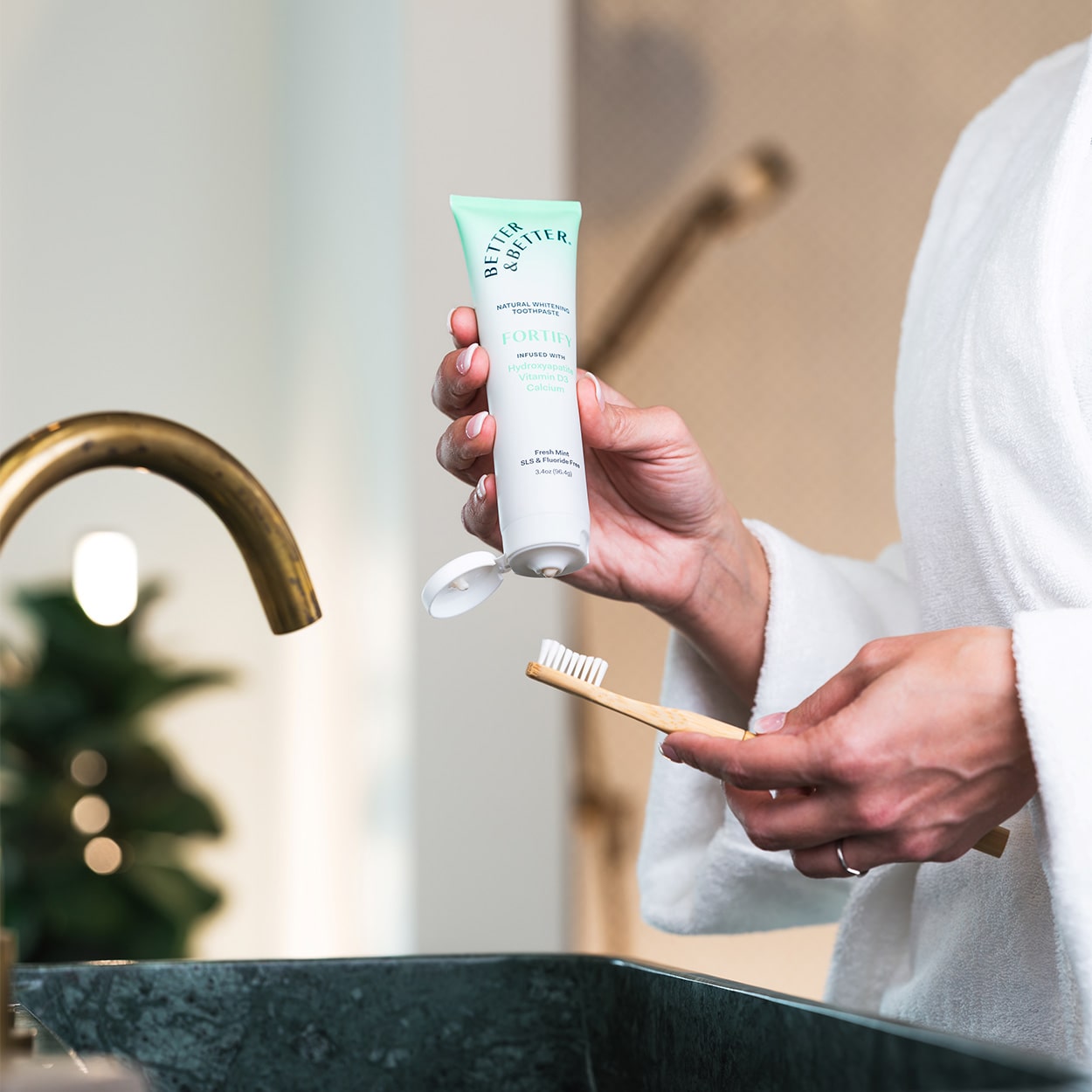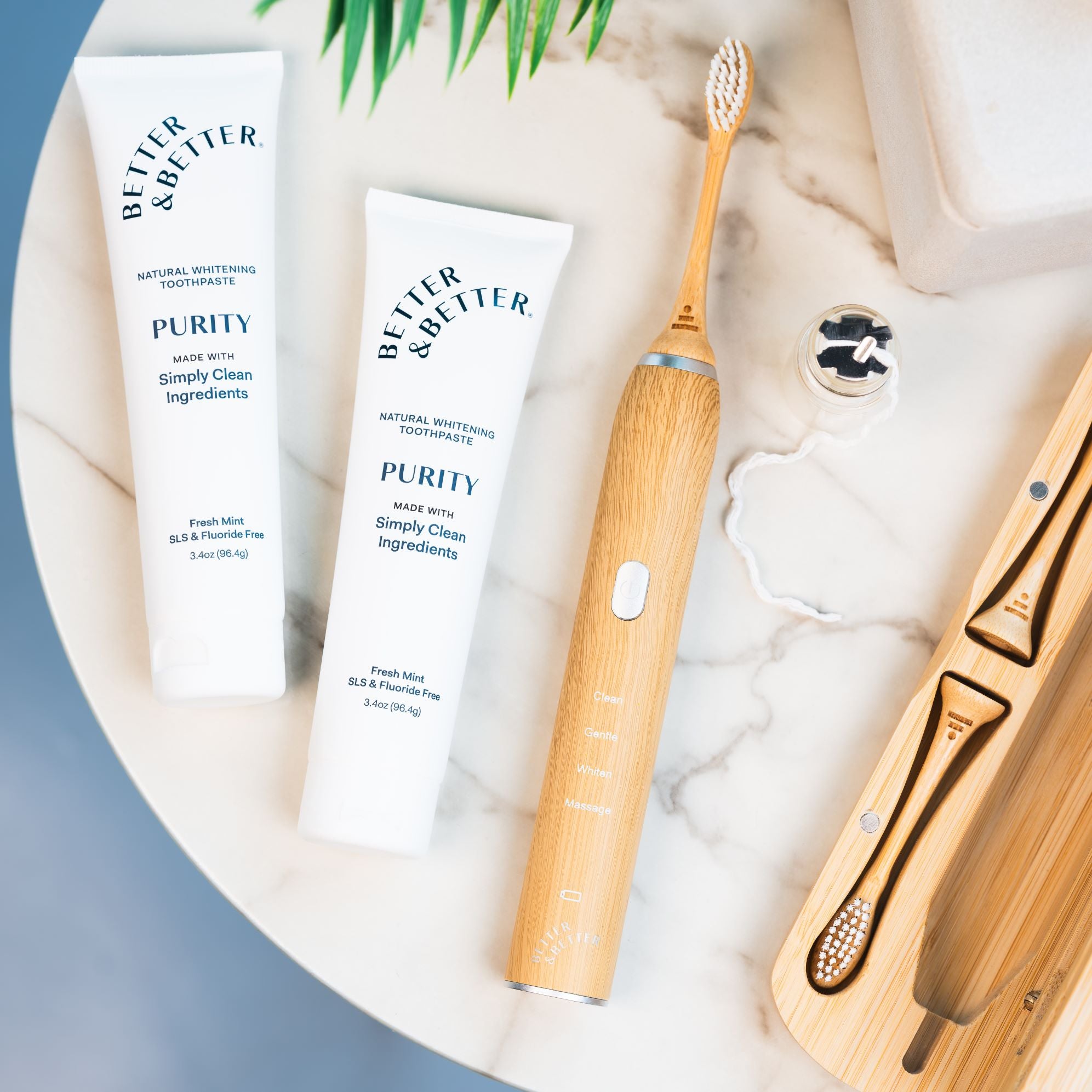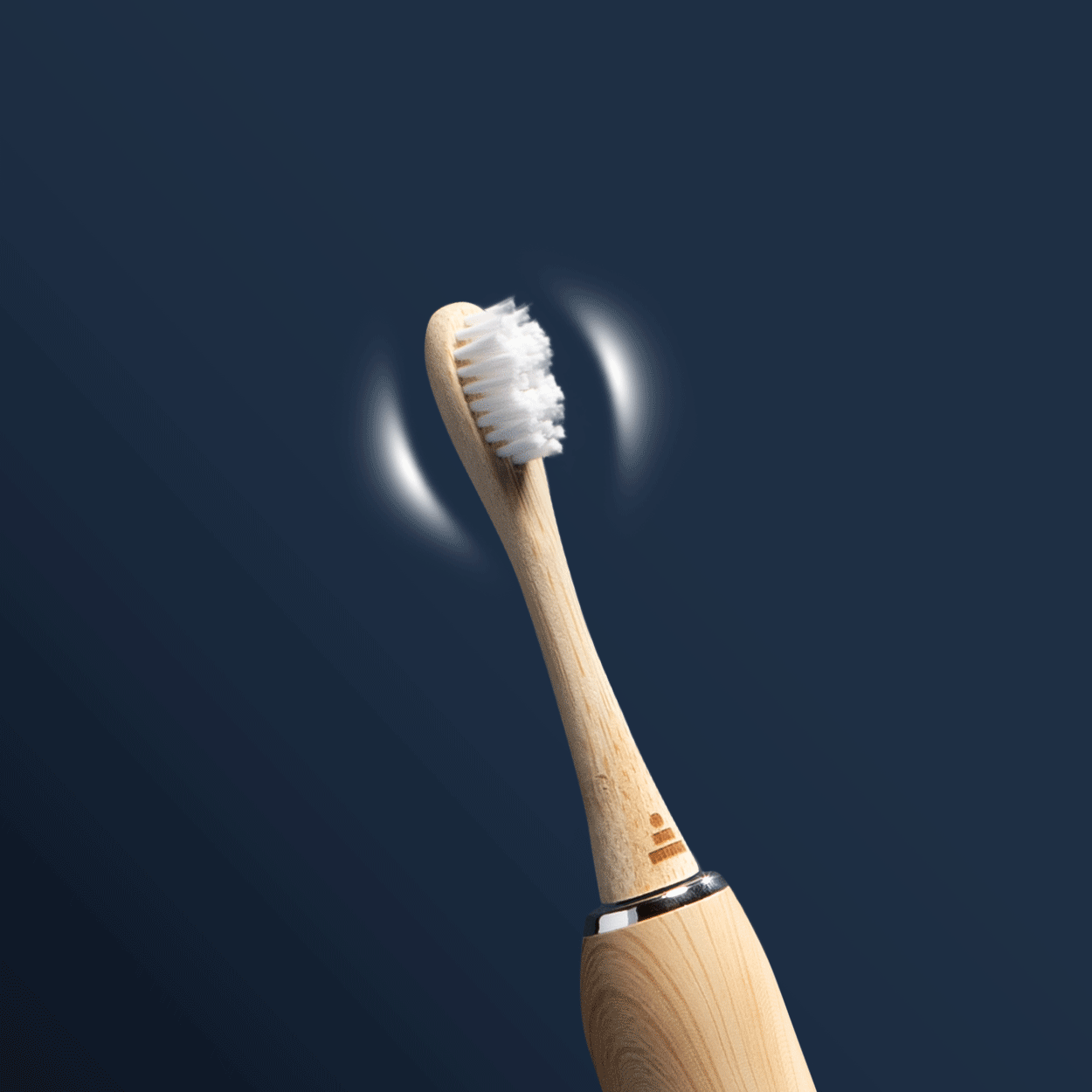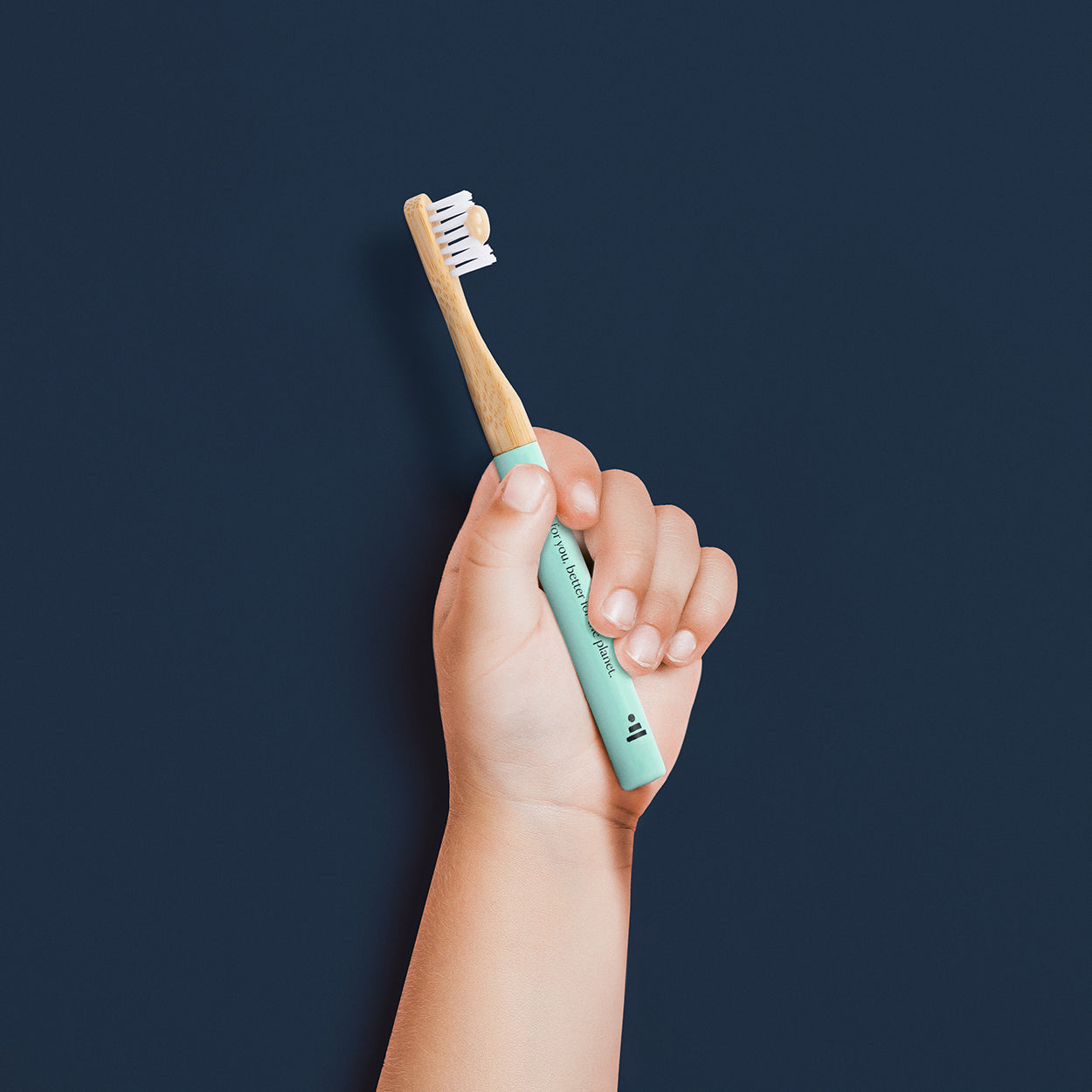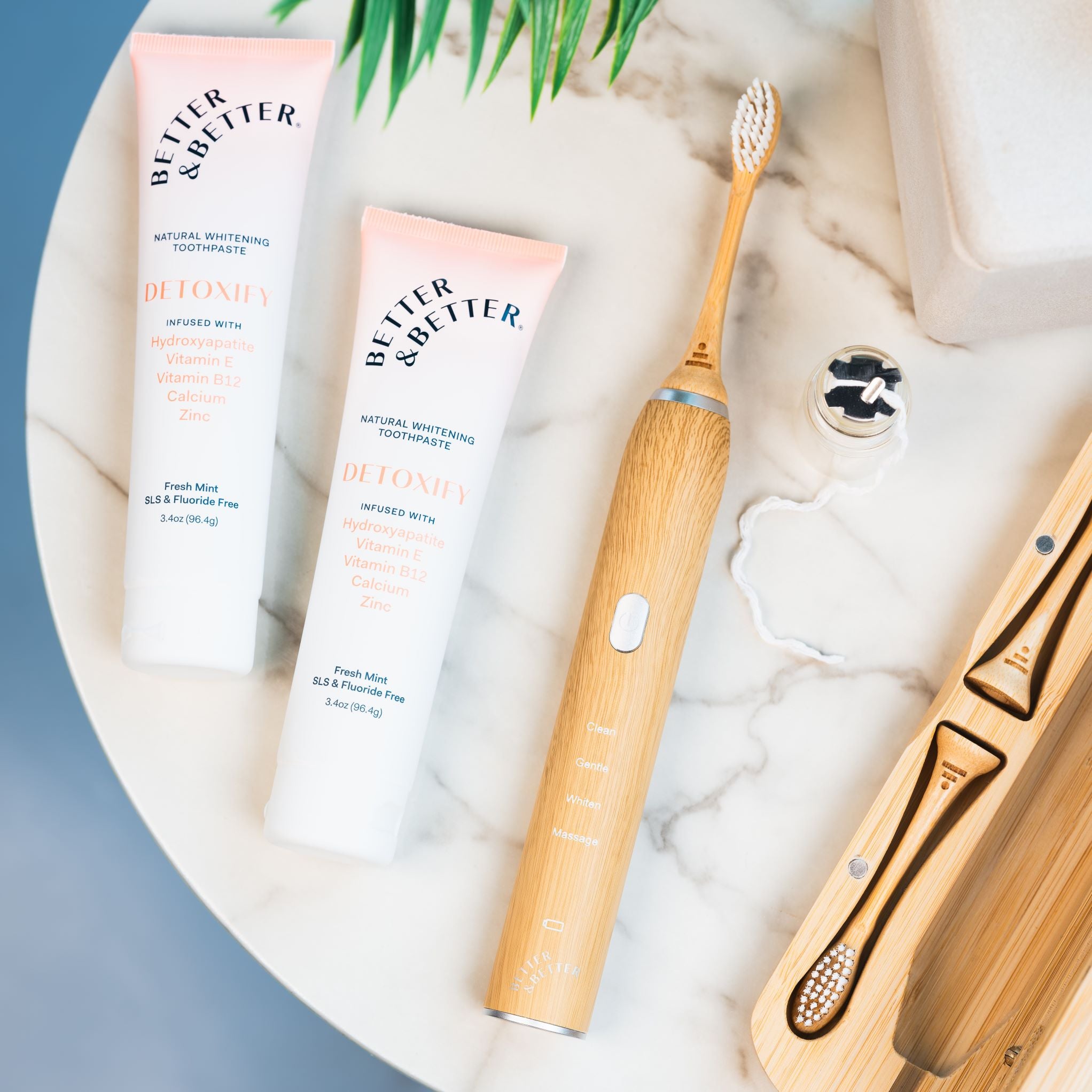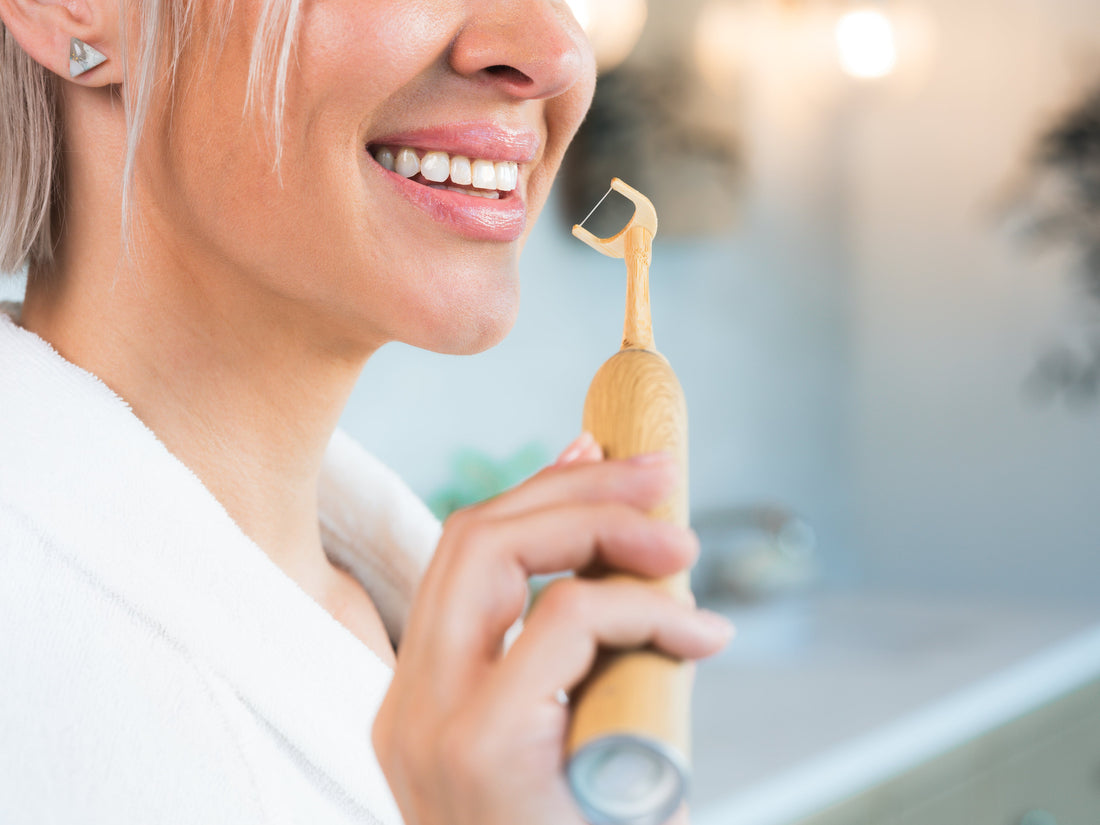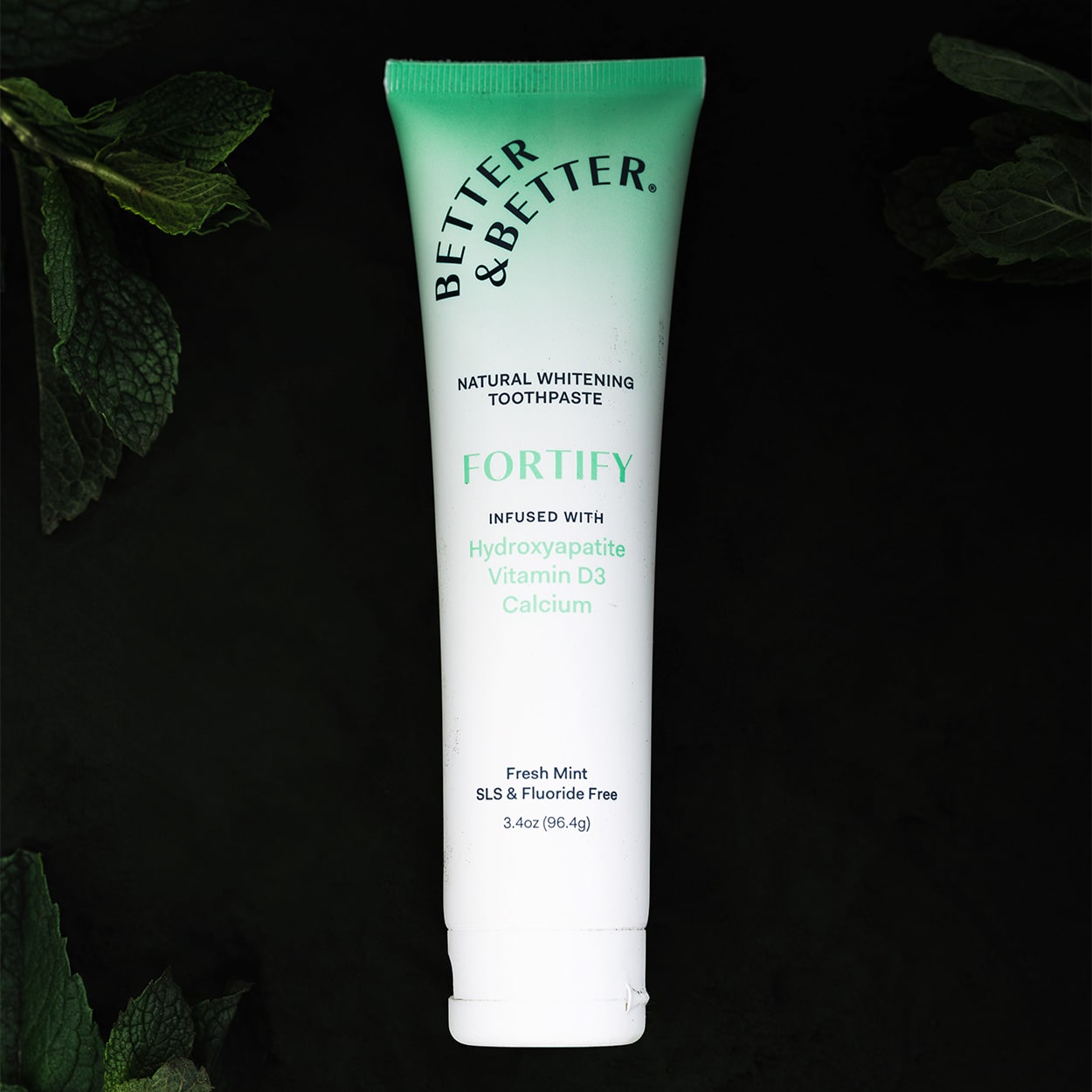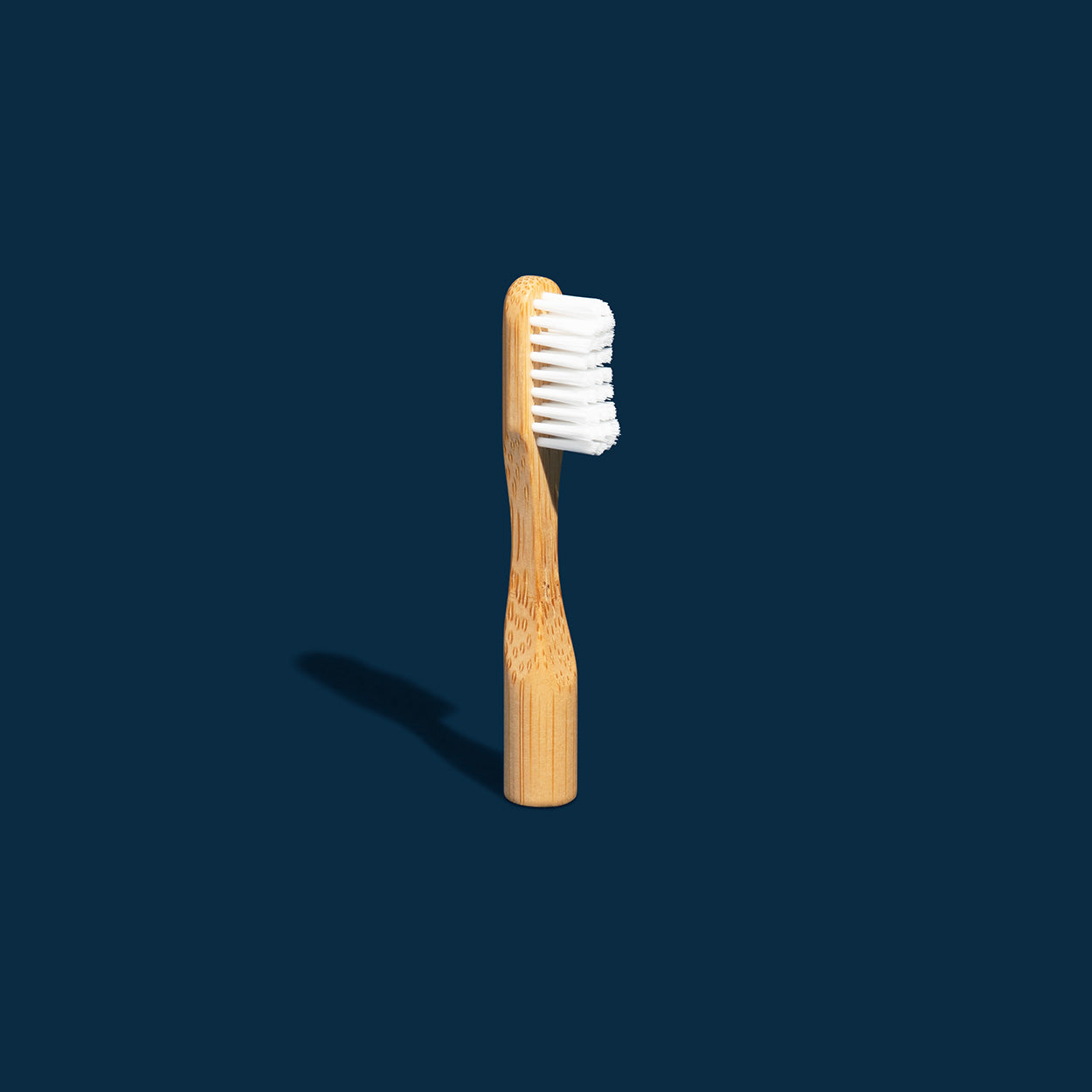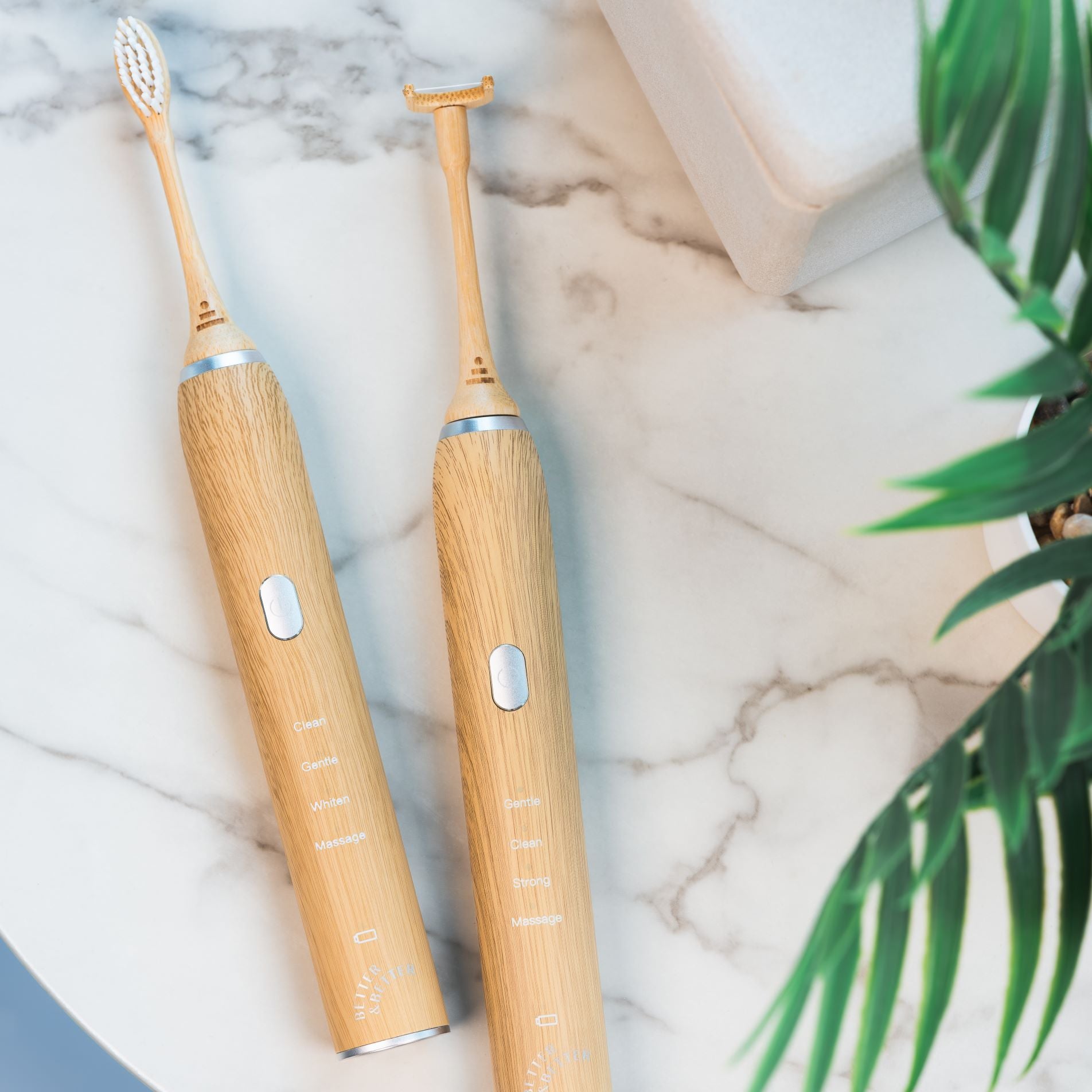When you see the word “probiotics,” you probably think of gut health and yogurt commercials. But over the past decade, researchers have discovered certain strains of probiotics that specifically benefit your oral health.
The inside of your mouth is home to millions of bacteria and other microorganisms that make up your oral microbiome. If your ratio of good bacteria to bad bacteria gets thrown off, it can lead to all sorts of oral health issues. That’s where dental probiotics come in.
Dental probiotics (also called oral probiotics) are living microbes that stabilize your oral microbiome. Research shows they can prevent cavities, fight gum disease, and even freshen your breath—more on that soon.
In this article, you’ll learn what dental probiotics are, how they benefit your oral health, and how to incorporate them into your routine.
What Are Dental Probiotics?
Dental probiotics are living microbes that stimulate the growth of good bacteria in your mouth while suppressing bad bacteria. In contrast to probiotics for your gut, dental probiotics thrive in your oral cavity, which requires specific bacterial strains to stay healthy.
Most dental probiotics are bacteria, but they can also be molds or yeasts. That might sound gross, but without these microbes, your mouth would be a mess.
Dental probiotics are found naturally in fermented foods such as yogurt, kefir, kimchi, and kombucha. They can also come in the form of supplements including powders, liquids, gels, and capsules.
Dental Probiotics vs. Dental Prebiotics: What’s the Difference?
In addition to dental probiotics, your oral microbiome also needs dental prebiotics. You can think of prebiotics as “food” that probiotics feed on to stay alive and thriving. By providing fuel for probiotics, dental prebiotics stimulate the growth and activity of beneficial bacteria in your oral microbiome.
The most common sources of dental prebiotics are carbohydrates (primarily non-digestible fiber) from fruits, vegetables, beans, and whole grains.
Consuming balanced amounts of both probiotics and prebiotics ensures that you maintain the right balance of these bacteria to keep your oral microbiota healthy.
6 Benefits of Dental Probiotics
Over the past decade, scientists have conducted groundbreaking research into the oral health benefits of dental probiotics. Let’s take a look at six reasons why these microorganisms have a huge impact on your dental health.
1. Fix Bad Breath
Probiotics can be used to treat bad breath (halitosis), which is caused by sulfur-producing bacteria that live on your tongue and inside your throat. A study in the Journal of Applied Microbiology found “significant reductions in volatile sulfur compounds” for people with halitosis who used the probiotic Streptococcus salivarius, compared to a placebo group.
2. Prevent Cavities
The main cause of cavities (canaries) is dental plaque: a sticky film of bacteria that forms on your teeth and turns into tartar. Several studies suggest that consuming dental probiotics can reduce the amount of cavity-causing bacteria in your saliva.
Specifically, Lactobacillus paracasei SD1 has promising potential to slow the progression of cavities and help remineralize incipient caries.
3. Treat Gingivitis and Periodontal Disease
Probiotics are quickly becoming a go-to treatment option for periodontal disease and gingivitis, both of which stem from unhealthy bacteria in the mouth.
In one early study, Patients with various periodontal diseases, gingivitis, periodontitis, and pregnancy gingivitis, were treated with a probiotic strain called L. acidophilus. Almost every patient achieved significant recovery.
In more recent studies, probiotic strains were shown to improve gingival health by reducing plaque along the gum line, reducing bleeding, and reducing pocket depth.
4. Prevent Oral Thrush
Oral thrush is a condition where white spots develop on your tongue due to an overgrowth of Candida, a strain of fungi. A 2017 study found that the patients who ate cheese containing the probiotic L. rhammnosus GG reduced their levels of oral Candida, which subsequently protects against oral thrush.
5. Prevent Plaque Buildup
There are a few ways dental probiotics prevent plaque buildup:
- Dental probiotics occupy the surface where plaque-causing bacteria would otherwise thrive, limiting their ability to establish themselves.
- Dental probiotics actively inhibit the growth and activity of harmful bacteria.
- Dental probiotics regulate the pH levels in your mouth, creating conditions that are less favorable for plaque to form.
- Plaque is a biofilm—a slimy layer of bacteria that sticks to surfaces. Dental probiotics slow the formation of this biofilm, making it harder for plaque to accumulate on your teeth.
6. May Reduce the Risk of Oral Cancers
To date, there isn’t enough human evidence to suggest that dental probiotics can prevent cancer. However, a 2020 review of multiple animal studies observed that probiotics—specifically L. salivarius REN—slow the progression of oral cancer.
Do Dental Probiotics Really Work?
There are decades of evidence to suggest that probiotic bacteria improve your dental health. However, more long-term clinical trials are needed to determine whether dental probiotics are a proven means to treat and prevent oral diseases.
“Several health-promoting effects of probiotic bacteria are well documented, and there is no reason to restrict the use of probiotic products because their effects on oral health are not yet well understood,” says Anna Haukioja in the European Journal of Dentistry.
What’s the Link Between Your Oral Microbiome and Your Gut Microbiome?
Your oral microbiome and gut microbiome are a dynamic duo that works together in fascinating ways. Here are just a few examples:
- Swallowing and Traveling: Some of the bacteria in your mouth end up in your stomach through the process of swallowing. So, whatever's happening in your oral microbiome can influence what's going on in your gut.
- Immune System Cross-Talk: When your immune system encounters microbes in the mouth or gut, it learns to recognize them. Accordingly, the health of one microbiome can influence the immune response in the other.
- Digestive Health: Your oral and gut microbiomes both play roles in digestion. For example, some bacteria in your mouth start breaking down food, and the byproducts of this process can affect the environment in your gut.
- Disease Connections: Imbalances in one microbiome can contribute to issues in the other. For example, certain oral bacteria have been linked to conditions like inflammatory bowel disease (IBD) and rheumatoid arthritis.
How to Add Dental Probiotics to Your Routine
The best way to stay on top of your oral hygiene is to brush your teeth twice daily, floss daily, and go in for dental check-ups twice a year. Once you have those basics covered, you can focus on working dental probiotics into your routine.
The most efficient way to increase your intake of dental probiotics is through dietary supplements. Dental probiotics come in the form of chewable tablets, capsules, gummies, lozenges, and powders.
You can also increase the presence of probiotics in your oral microbiome by eating these probiotic-rich foods:
- Cultured cottage cheese
- Kombucha (a fermented tea)
- Dark chocolate
- Sauerkraut
- Cheeses, especially soft cheeses
- Miso
- Almond butter
- Pickled cucumbers or other fermented vegetables
- Probiotic milk
- Sourdough bread
- Mangos
- Yogurt
- Kefir (a fermented milk drink)
There you have it—so many of us grew up trying to avoid the wrong foods for our teeth. But as you can see, it’s also important to embrace the right foods to stay on top of your oral health.
Note: If you purchase on Amazon by clicking a link on this website, we may receive commission.


